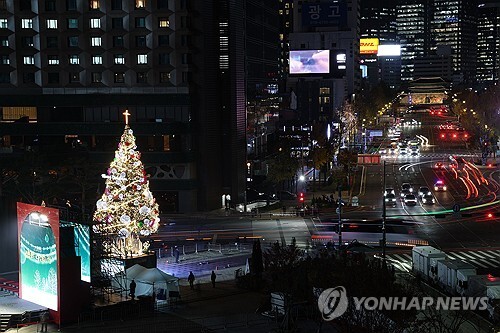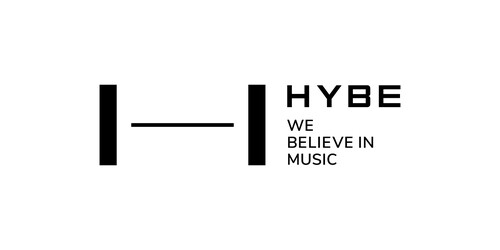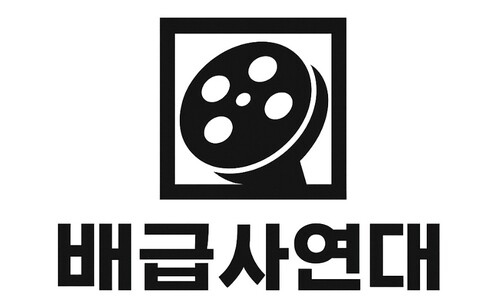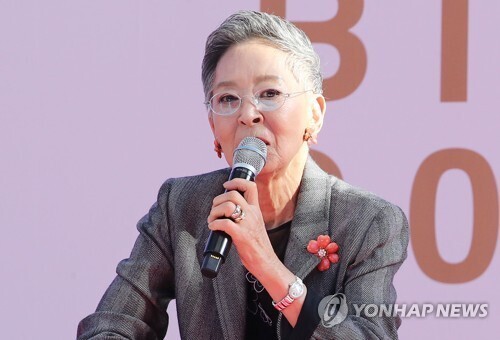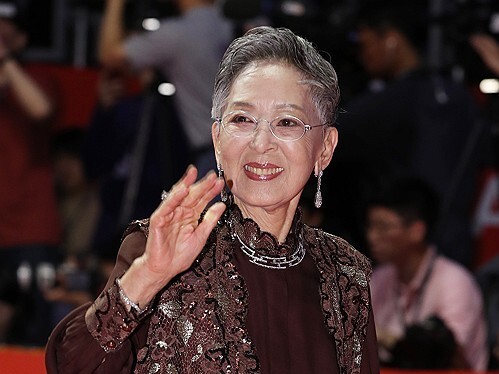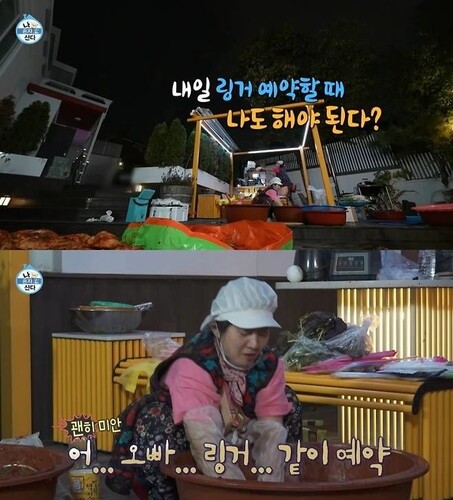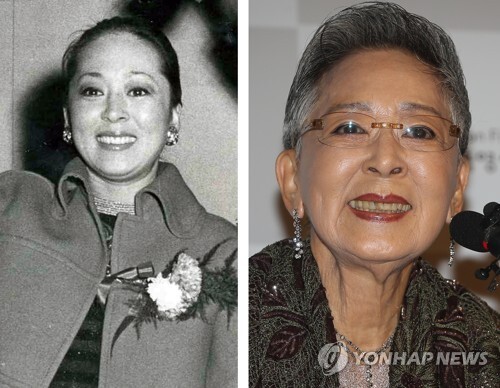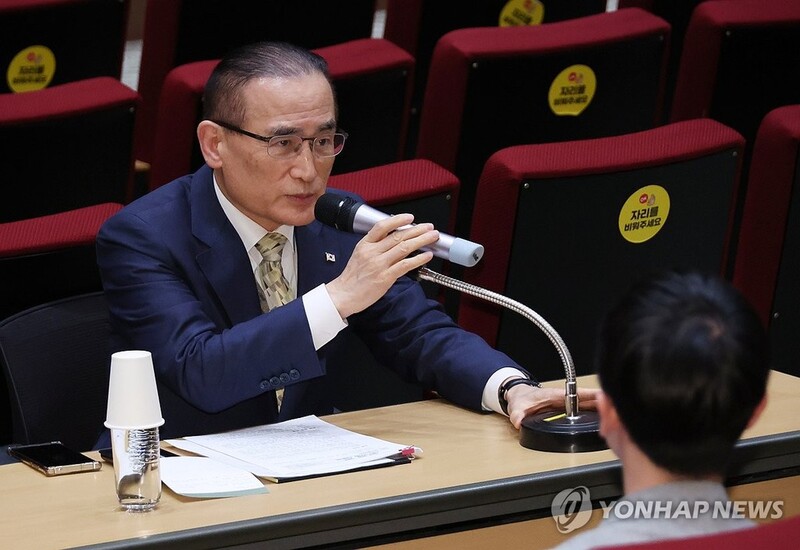 |
| ▲ National Security Adviser Wi Sung-lac speaks during a press conference at the presidential office in Seoul on Aug. 22, 2025. (Yonhap) |
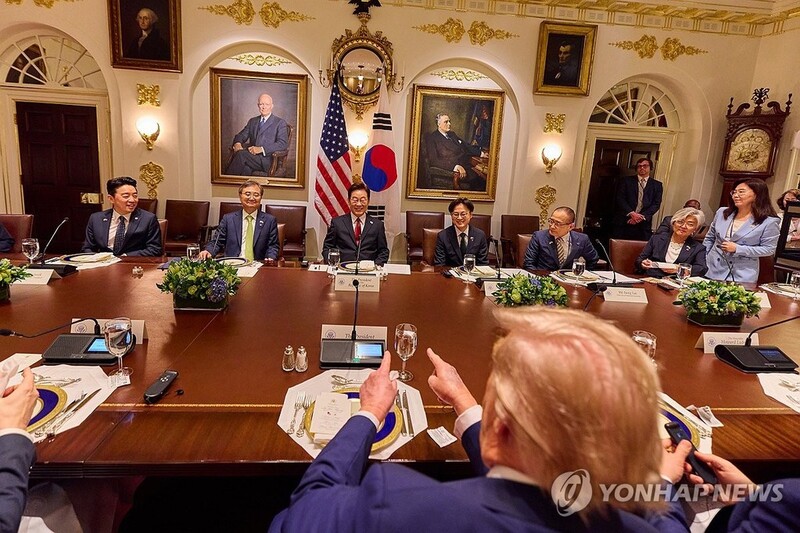 |
| ▲ President Lee Jae Myung (3rd from L) attends a lunch meeting with U.S. President Donald Trump at the White House on Aug. 25, 2025, in this photo released on Lee's social network account. (PHOTO NOT FOR SALE) (Yonhap) |
security adviser-N Korea
N. Korea appears to be inactive in engaging in diplomacy with S. Korea or U.S.: security adviser
By Kim Eun-jung
SEOUL, Aug. 29 (Yonhap) -- North Korea appears to be inactive in engaging in diplomacy with South Korea or the United States, National Security Adviser Wi Sung-lac said Friday, days after both President Lee Jae Myung and U.S. President Donald Trump expressed their eagerness to resume talks with Pyongyang in their high-stakes summit.
Wi made the remarks a day after Pyongyang's state media announced that North Korean leader Kim Jong-un will soon visit China to attend a military parade next week in Beijing, setting the stage for a possible three-way summit with Russian President Vladimir Putin and Chinese President Xi Jinping.
Wi told CBS radio that it would be "constructive not to set expectations too high for the possibility of dialogue" with North Korea.
"At present, North Korea has not shown willingness to engage in talks, either with us or with the U.S.," Wi said.
He said it would be better to "calmly" wait for Pyongyang's response, given that it has taken a "very passive and negative attitude" toward Lee's peace overtures.
He also assessed the likelihood of Kim attending the Asia-Pacific Economic Cooperation summit in South Korea in late October as "very low."
On the planned visit by Kim to China, Wi said, "This is a development that requires close attention."
Reflecting on Lee's summit with Trump, Wi said the most visible outcome was the two leaders building "personal rapport," given Trump's unconventional style that emphasizes personal chemistry.
Although Seoul and Washington had worked on a joint statement covering security, trade, investment and economic cooperation, it was not released at the end of the summit as progress in some areas was deemed "slow" and required further consultations with ministries and parliament.
In addition to agreement on shipbuilding, he cited "meaningful progress" in nuclear energy cooperation, including potential partnerships for nuclear exports and a bilateral nuclear energy pact.
"South Korea and the U.S. could jointly enter third-country markets, while discussions are under way on giving South Korea greater leeway in nuclear enrichment and reprocessing," he said.
Seoul has long hoped to secure uranium enrichment and reprocessing capabilities to complete the nuclear fuel cycle, as it views these capabilities as crucial to addressing its energy security and environmental concerns, and helping its export bids.
Washington has been cautious against lifting restrictions in the pact due largely to proliferation concerns, given that a reprocessing facility can be utilized to extract plutonium used to build nuclear weapons.
(END)
(C) Yonhap News Agency. All Rights Reserved







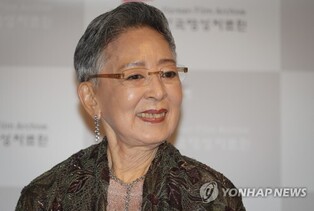

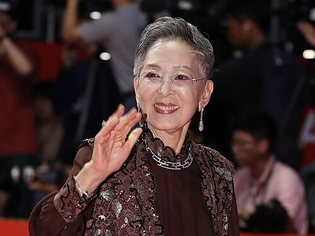
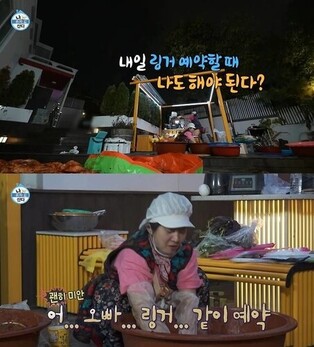
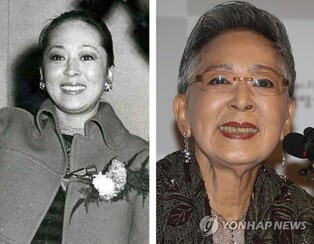
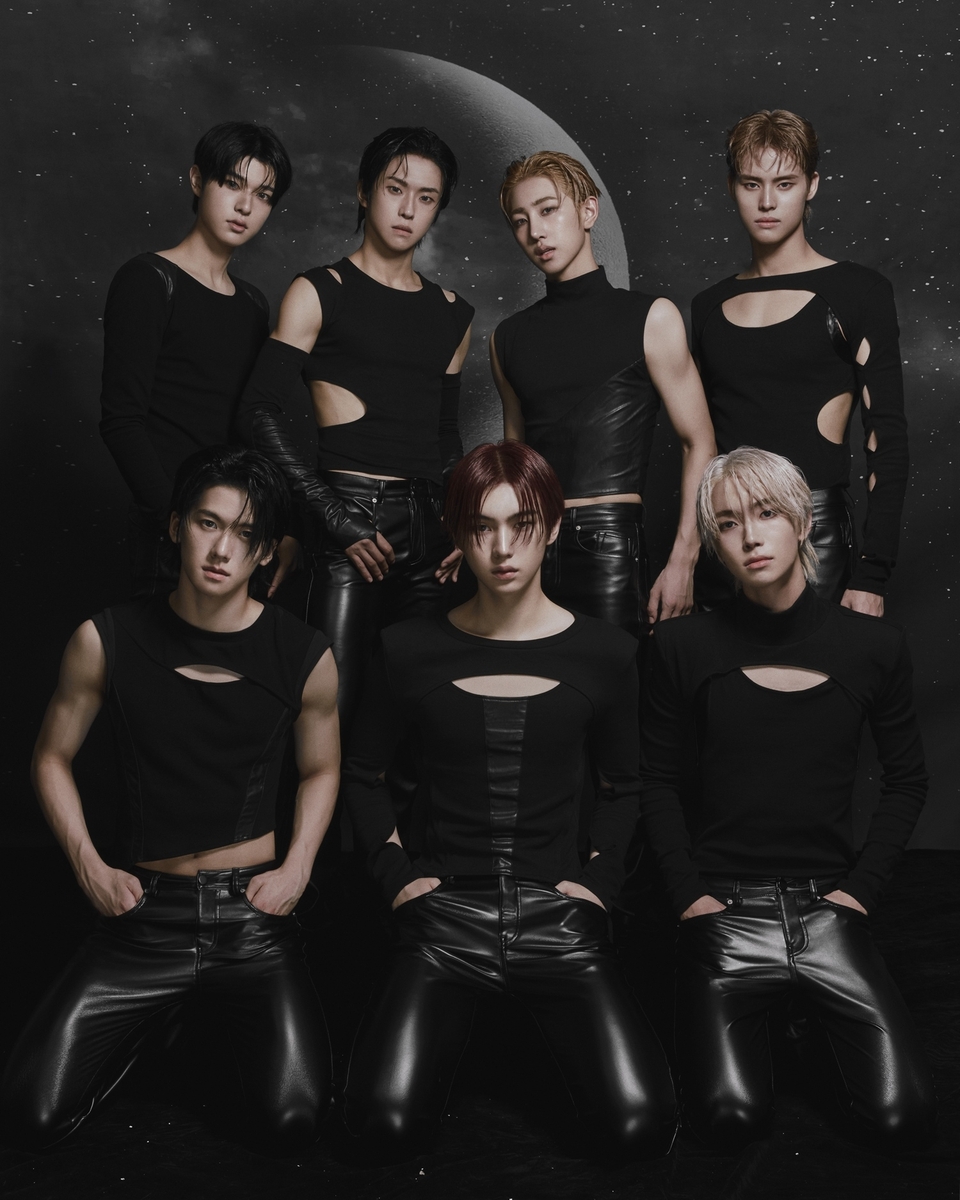
![[가요소식] 지코, 요아소비 이쿠라와 신곡 '듀엣' 발매](https://korean-vibe.com/news/data/20251212/yna1065624915953509_920_thum.jpg)
